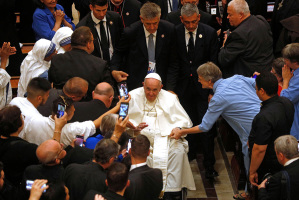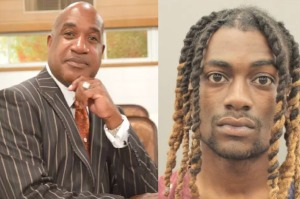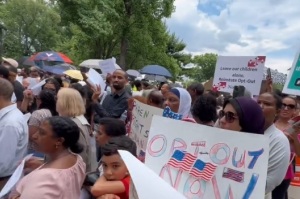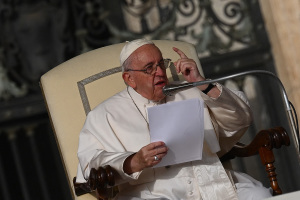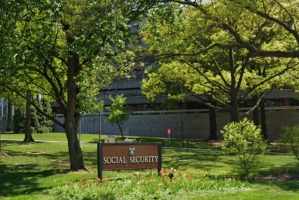Silver lining in the dark cloud': Closure of public schools creates challenges, opportunities
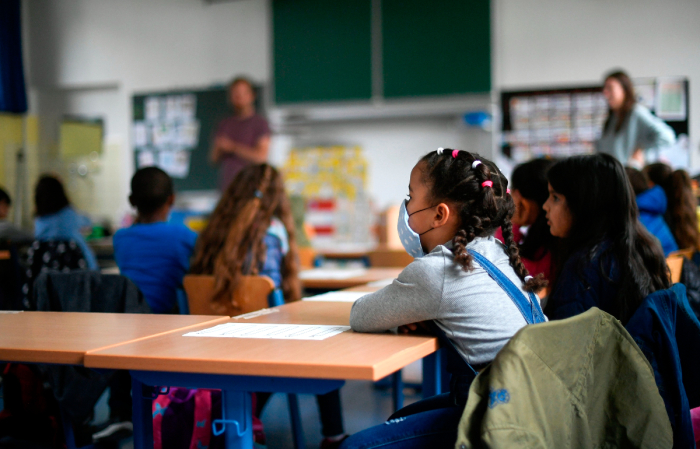
A year into the coronavirus pandemic, many public schools in the United States remain closed for in-person instruction. While some experts assail the prolonged widespread closure of public schools for causing students to experience declines in mental health and academic performance, others see a blessing in disguise that will empower alternative forms of education.
When the coronavirus pandemic was declared in March 2020, schools around the world ceased holding in-person instruction. Many school districts transitioned to virtual learning, where students would meet with their teachers via digital platforms such as Zoom. The widespread closure of public schools continued in most cases for the remainder of the 2019-'20 school year.
When the 2020-'21 school year began, many school districts in the U.S. continued to conduct classes entirely virtually or embraced a "hybrid" model where students attend classes in-person for part of the week while distance learning the rest of the week. While only a small number of school districts offered full, in-person learning for all students at the beginning of the school year, that number has expanded as the year progresses.
The extended closure of public schools in the U.S. has had negative effects on American students. Still, it might have opened up other opportunities for education in the long term, according to experts who spoke with The Christian Post.
Education Week has kept track of the reopening statuses of member districts in the Council of the Great City Schools. This collection of school districts, featuring some of the largest school systems in the country and one in Canada, contains more than 8.2 million students. It accounts for 15% of the total public school enrollment nationwide.
While 56 of the 75 districts included in the Council of the Great City Schools currently offer some type of in-person instruction, a significant number of them have not offered widescale in-person learning for any part of the school year, which is well into its second semester.
Portland Public Schools, the largest school district in Oregon, has not opened for in-person learning this year. The district will implement a hybrid option for students in kindergarten through fifth grade in early April and a hybrid option will begin for older students later that month.
Other districts that have yet to hold in-person learning this school year but will offer it in some form before the conclusion of the academic year include Sacramento City Unified School District in California, Jefferson County Public Schools in Louisville, Kentucky, Kansas City Public Schools in Missouri, and Long Beach Unified School District in California.
Richmond Public Schools, one of the largest school districts in Virginia, will remain completely virtual for the duration of the second semester. School districts in Fresno, Oakland and Santa Ana, California, have yet to open for widescale in-person learning this school year. But they have opened classrooms for select groups of students, such as those enrolled in classes for students in which English is a second language and special education programs.
Four people who shared their perspectives on the consequences of the widespread closure of public schools include a senior official with a conservative-leaning think-tank, the author of a book detailing her experience educating her children during the coronavirus pandemic, the president of a coalition of Christian schools and universities, and the author of a book urging parents to pull their children out of public education.
Consequences of widespread public school closures
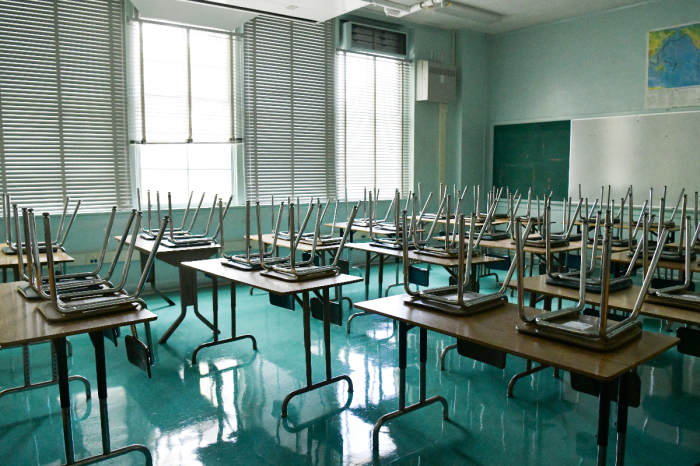
According to Hadley Manning, the policy director for the Independent Women's Forum, who has extensively studied the consequences of school closings, the widespread closure of public schools "has exacerbated some existing inequalities in our educational system."
In an interview, Manning said that while many families have the "means and resources to put together a homeschooling pod, hire a private tutor, put the children in private school or to make other arrangements," students who come from families who lack the aforementioned means and resources "have been working essentially on their own at home through virtual learning, which the data would suggest is no replacement for in-person schooling."
David Dockery, the president of the recently formed International Alliance for Christian Education, echoed Manning's concerns.
"I think students from strong families, particularly — where both parents are educated — there will be strong efforts to ensure that those students are taken care of and almost a homeschooling approach provided,” he said.
"But for so many families ... both parents working, both are busy, not able to provide the care and instruction needed for the students who are missing that from their teachers, I think we don't know the impact of that at this time, but it's certainly a concern for all of us.”
Dockery, the chancellor of Trinity International University in Illinois, said he's “concerned” for students in primary school, saying that in-person instruction for elementary grade students is “vitally important.”
Emily Greene, the author of School, Disrupted: Rediscovering the Joy of Learning in a Pandemic-Stricken World, who researches and writes about education, creativity, the neuroscience of learning, agreed with Dockery.
"It doesn't take an advanced degree to realize that [the] format of [online] learning is not how young children learn,” she said.
Manning expressed concern for "children who have essentially lost a year of education because their school system has been closed and they haven't had access to good alternatives.” She warned that "those children may face a real education deficit."
"I think that would be ... a totally reasonable expectation to see the education gap widening between children who are advanced and who continued to advance during the pandemic and children who probably have seen some backsliding."
"It's pretty common knowledge that over the summer months, when schools are typically closed, you see some sort of regression educationally among students who are out of school for the summer, but this is like a summer that has lasted for 12 months,” she continued.
"One of the biggest failures with virtual learning is that you can't make kids show up," Manning remarked. "For example, in Boston, only half of the students showed up for online instruction on any given day."
"The question of school closure is much bigger than an academic question," she said. "It's a question about what's best for children broadly speaking, not just in terms of their progress on reading, writing and arithmetic, but their social and emotional development, their mental health, and their ability to have a safe place to be during the day."
Manning also spoke about the mental health impacts of the widespread school closures and the accompanying social isolation.
After citing reports about "higher numbers of youth reporting depressive symptoms, anxiety symptoms" and suicide attempts, Manning maintained that it was hard to get concrete mental health statistics because the U.S. has a "delayed reporting system" when it comes to suicide rates.
In Japan, which Manning said "has one of the fastest data capturing systems in the world when it comes to suicide rates," previous data from the fall showed an 80% increase in the suicide rates among women.
"There's an impact certainly on the mental health of our young people, our children and also I would say on parents because there is that additional layer of stress that comes with trying to educate children at home while also continuing to provide financially for the family,” she contends.
“Many families depend on two incomes, and so that math doesn't work out. Two full-time jobs plus the job of overseeing virtual education at home is too much for many working parents," Manning said.
Another unintended consequence of keeping schools closed for in-person learning, Manning asserted, relates to the reporting of child abuse because "the school system is a very important part of our child abuse reporting mechanism in this country."
"Aside from parents, family members, pediatricians, teachers and school counselors are some of the most important people in preventing child abuse or stopping child abuse,” Manning stressed. “And so we've lost that with the widespread closure of public schools."
Opportunities presented by widespread public school closures
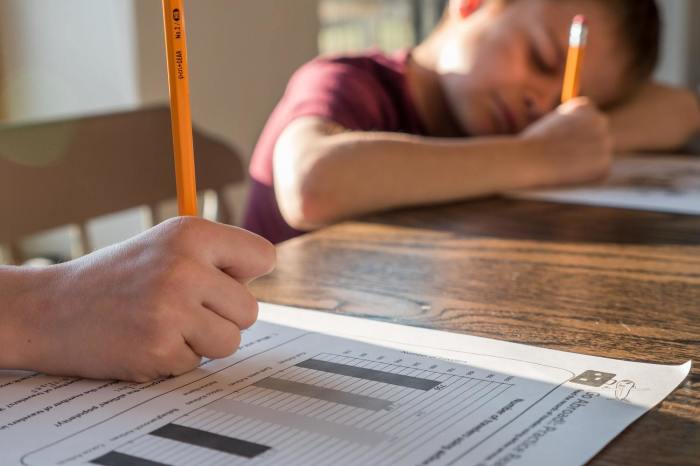
Lt. Col. Ray Moore is the chairman of the board for publicschoolexit.com, a website designed to provide resources for parents seeking to withdraw their children from public schools.
Moore, an Army Reserve chaplain and an outspoken critic of contemporary public education, sees a silver lining in public schools' widespread closure and the accompanying adaptation of virtual learning.
With many parents at home with their children, they have the opportunity to listen to what they are learning at school.
"The public school curriculum is coming into their living rooms, and some of it is just terrible, borderline pornography,” he asserted. “They teach sex education in ways that are not compatible with Christian teaching. And the parents are seeing on the computer in their living rooms, and they're just horrified."
Moore said that in some districts, public schools are “trying to get parents to sign a document saying that they will not look at the curriculum that their children are getting in their living room.”
“[It’s] pretty amazing that they would go that far," Moore told CP.
For example, a Tennessee school district asked parents to sign a waiver promising not to listen to or monitor their children's virtual learning sessions due to concerns about "confidential information about a student being revealed."
The district later issued guidance that would allow parents to "assist their children during virtual group lessons with permission of the instructor."
"They are fearful, the public school people are fearful that the parents will discover what they've been doing to harm the children, and they are in fact discovering it,” Moore concluded. “The system's out of control. It can't correct itself.”
Moore elaborated on the content that some public school children have been exposed to in school, including lessons related to the Black Lives Matter movement, transgender ideology and critical race theory, which he described as "viruses that have attached themselves to the education system."
In addition to slamming the "anti-Christian" philosophy that has infiltrated some public schools, he reiterated that the U.S. and other nations find themselves in "a 100-year moment for private Christian schools and homeschooling."
While acknowledging the tragedy of the COVID-19 pandemic, Moore said that the widespread closure of public schools has provided "an unprecedented opportunity for K-12 Christian schools and homeschools to really accelerate and grow exponentially."
Moore pointed to studies finding that a significant share of students who attended public schools before the pandemic might never return to the state-run schools when the pandemic comes to an end and in-person learning resumes on a mass scale.
Although Dockery was "expecting an enrollment decline of perhaps deep significance because of the coronavirus," he told CP that "overall our enrollment has maintained health.”
“The level has been better than what we expected, and there are a handful of schools that even have shown increases for which we are both surprised and grateful,” Dockery said.
Greene agreed with Moore that the widespread closure of public schools was "a long-overdue disruption of a very outdated education system" that triggered "the most robust period of innovation in the entire history of education in America."
She told CP that "American society and American parents have relied on outsourcing their education to schools for 100 years and in a blink, we experienced how fragile that framework is."
"Parents started opening their mind for new ways for children to learn, which is so exciting," she recalled.
Greene cheered one new method of learning: the increased establishment of "learning pods," a form of homeschooling where a group of parents and their children band together, and each parent would teach the children a specific subject.
She also disagreed with the notion that children learned less during the widespread closure of public schools than they would have if they were attending school for in-person learning.
"Many families experienced this completely new vast expanses of free time during the pandemic and the things that parents and children did to discover new talents and passions, new interests and curiosities in this free time might very well lay the foundation for their future careers,” Greene added.
"The way that families got outside in new ways during the pandemic, there's a completely new path of learning for many kids who go to public schools and get 20 minutes of outside time per day. There was a verifiable explosion in making things, in hands-on making things, meaning people who never picked up a needle and a thread started making things with their kids. People who never baked cookies all of a sudden were making sourdough starters, and it goes on and on and on.”
Greene concluded that if the insight was available to measure “how our kids actually grew during the pandemic, we might discover that they learned more than they would have in traditional schools."
Moving forward
The experts who spoke with CP shared their thoughts on what they think the state of American education will look like following the pandemic and what changes they would like to see regarding education in the U.S. going forward.
Manning predicted that following the pandemic, Americans will "have a greater appreciation for the importance of education. Not simply as a means for educating children but as a means for learning social skills and allowing peer-to-peer interaction." She also expressed hope that "many of these bills that have been proposed in state legislatures to allow for greater school choice" will become law.
Specifically, Manning would like to see policies enabling "all families to have an education savings account that is funded by the state and allows them to direct their education dollars” to public schools, private schools, homeschool pods or other education models.
Manning favors the implementation of a "robust school choice policy" that extends beyond "people who have the resources" and "the financial security that supports alternative methods."
Dockery hypothesized that following the pandemic, "parents will take more responsibility for the education of their children" and "Christian education in various forms" will "expand and be strengthened."
He told CP that he believes society has “learned a new level of flexibility that will lead to new levels of innovation for the days ahead."
"I think we have learned that online education is here to stay," he added. "I think we have all learned how to use online learning, and we will continue to do so, making it not an auxiliary option but a significant part of our educational offerings,” Dockery said.
“So yes, I agree that the changes that have been implemented during the COVID season will likely remain with us, but I think our schools have adjusted well to the hybrid model, and we'll be healthy and maybe even stronger as a result of it."
With the expansion of homeschooling following the pandemic, Moore suggested that "it's possible the public school system will begin to implode and unravel and ideally collapse."
He surmised that such a scenario would allow the U.S. to "revert back to a private, free-market, Christian and home education, which was the original American model for the first 200 years of American history."
"Public education is a socialistic model in education. And socialism never works,” Moore asserted. “It always is very self-destructive, and it's not working now in education. So public education is pretty well dysfunctional, and a lot of people know it."
Moore envisioned an America where parents and churches were working together by "rescuing the children" from public schools, believing that such an arrangement would lead to the home transforming into a "biblical learning center" that "strengthens marriages" and ends up "revitalizing the family."
Greene praised the rise in parental engagement that has accompanied the coronavirus pandemic. She expressed hope that when the pandemic is over, people will not forget that "ultimately, the people who are most responsible for our children's education are the parents." She warned that "without the parents' voice in the revitalizing of our education system in this final moment, things will simply regress into status quo.”
“So this is the time for people to stay engaged and speak up and not just slide back into outsourcing our children to schools,” the author said.
















